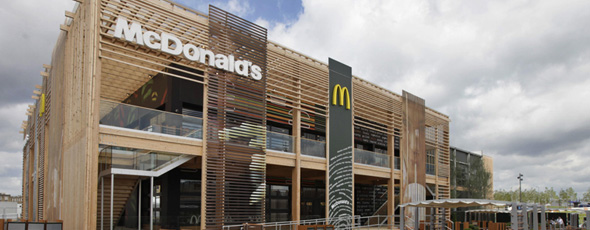
There’s a song by Stephen Sondheim, in the only musical about local government I can think of, that goes:
“Everybody says don’t,
Everybody says don’t walk on the grass,
Don’t disturb the peace,
Don’t skate on the ice…”
This seems to be the kind of Britain we have now, where the slightest disturbance of the status quo is met with a swift “don’t”.
Each week brings new examples: McDonalds’ Olympic sponsorship leading to instructions that off-message chips could not be sold in the Olympic park. The decision by Argyll and Bute council to ban a school child’s blog about school dinners, without any authority to do so, showed how even the most passive freedom of speech can be seen as a threat. Want to do something about it? One of our Pirate Party activists was stopped for leafleting and told they couldn’t do so without a £50 licence, again without any authority.
The default policy seems to be to say no first, issue a press release after. If you are media savvy, you can get a single ridiculous decision overturned. If you aren’t and post a ranty thing on YouTube, you’re just a ranty person on YouTube. Little by little this threatens to undermine the desire to speak out, to participate. It increases the sense of individual powerlessness. Our Pirate Party activist is now more wary of going out to deliver, having been made more reluctant to take part in the democratic process at the grass roots level.
A recent study by Democratic Audit on the state of British democracy warned it is in “terminal decline”. Overall perception of conduct in public life is increasingly negative. It’s not hard to see why. But the toxic atmosphere created by the “everybody says don’t” society is every bit as important as MP’s expenses and the financial crisis. This is because the world most of us live in is not the world of MPs, mayors and bankers. It is the world of chips, school dinners and our local streets.
In trying to deal with this terminal democratic decline, too much focus has gone on the big institutions. We are to vote for police commissioners in November in an election few people are aware of; an election which apparently didn’t require a referendum to implement. In Manchester, a mayoral ballot failed to present exact information on what the candidate would do. Supporters of electoral reform must be painfully aware that there is no great popular movement for changing democratic institutions – especially after last year’s failed Alternative Vote referendum.
It has always seemed a ridiculous idea that the way to fix low electoral turnout is to hold more elections. Perhaps the greatest example of the failure of the main parties is the issue of House of Lords reform. All agree that change is needed to empower citizens, but none seem able to find a consensus.
Even on this issue, harmony would not solve the fundamental problem, that of a deeper sense of powerlessness. Much is said about voter apathy. From my own experience on the doorstep it’s not apathy, it’s antipathy. If you have no power to find out who owns the land behind your estate, or you are told that objecting to having missiles sited on your flats is baseless, then antipathy becomes a logical response.
Democratic decline will not be reversed until people genuinely see a change of culture that is meaningful to them on their terms. This means changing the default response of no to yes. Yes- we should have the right to know what is being done in our name, and on the sources of funding behind societal projects. Yes- we should encourage people to speak out. Yes- we should encourage people to participate. Then we may begin to think our voices can truly be heard.
Deep damage has been done. Let’s stop worrying about the “Big Society”, a little society would be a start. It is the climate of restriction and control that needs to be changed before we can really expect the public at large to have the confidence to move from antipathy to participation. This will require shedding fear, and effort to reach out to the 99% who don’t belong to a party and have no interest in occupying anything.
Oh. And how does the song end?
“I say don’t. Don’t be afraid.”
By Loz Kaye – Leader Pirate Party UK









